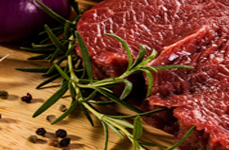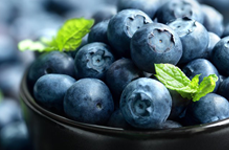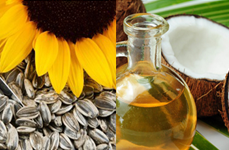Women have a lot of options for meeting their nutritional needs. So many, in fact, that it can get a little overwhelming to figure out what your body truly needs to stay healthy. And to make it even more complicated, clever marketing and hidden, proprietary ingredients can make some vitamins and supplements seem unique when they really aren’t unique at all.
Self-care doesn’t need to be complicated. Let’s simplify your wellness routine by taking a look at the top 9 vitamins and supplements every woman (even skeptics!) should take, and the science behind why you need them.
#1 Magnesium for Better Health
If it seems like practically everyone—from celebrity nutritionists to major publications—is talking about the many benefits and uses of magnesium, you aren’t imagining things. We talk about it a lot too. That’s because this often-overlooked mineral may hold the key to everything from reduced stress and anxiousness to better sleep, improved mood and overall wellbeing.
Magnesium is one of the most important nutrients because it’s involved in hundreds of enzymatic activities. It’s required for protein synthesis, muscle and nerve function and more.
Low levels of magnesium are difficult to spot because the symptoms, including feeling tired, stressed or anxious, can easily be mistaken for something else—like a case of the Mondays that seems to last all week long!3 After supplementing with magnesium, many people report feeling less stressed, more calm, healthier and happier overall.
How much magnesium do you need? Women over 18 need between 310-360 mg of magnesium each day. See all Swanson's magnesium supplements here.
#2 Energizing, Cognitive-Supporting Vitamin B12
The entire B-complex family of vitamins is important, but vitamin B12 is one of the most vital of them all, and many women don’t get enough, especially women on a vegetarian or gluten-free diet.
Vitamin B12 is well known for its role in energy production, and it helps your body in other ways too, including supporting cardiovascular health, healthy nerve cells, blood cell production, cognitive health and more.6 Studies show that even a mild deficiency in vitamin B12 may be related to cognitive health issues as we age.
Most adults need about 2.4 mcg per day.6 Check your multivitamin label and take note of your dietary intakes of foods rich in vitamin B12—including beef liver, clams, fish, meat and some dairy products—to determine how much you are getting each day. Consider taking a vitamin B12 supplement or B-complex supplement to help fill in any dietary gaps for this essential nutrient. Swanson Super Stress B-Complex is a customer favorite. It is formulated to replenish the vitamins and nutrients lost during high-stress times.
#3 Heart & Brain Supporting Omega-3s
Omega-3 fatty acids, including eicosapentaenoic acid (EPA) and docosahexaenoic acid (DHA), are shining examples of why not all fats are bad. Some of them are actually very good for our health.
These essential fatty acids are often praised for helping keep our minds sharp and playing a critical role in heart health.8 Omega-3s play important roles in brain function and development throughout our entire lives.8 Essential fatty acids also support healthy eyes, joints, skin, bones, and may improve memory and mood too!
Unless you eat a diet that includes plenty of fatty fish, you most likely need an omega-3 supplement to get your daily fill. Healthy adults need at least 1.1 grams of omega-3 fatty acids per day.
Looking for the best omega-3 supplement? See our products here.
#4 Vitamin D3 for Nutrient Absorption & Immune Health
There’s a common misconception that you only need a vitamin D supplement in the winter, or if you basically never go outside. That’s simply not true! There are other factors that play a role in your vitamin D levels too, like wearing sunscreen (which we should all do every day). Plus, as we age, our skin isn’t as efficient at synthesizing vitamin D.Many Americans do not have adequate vitamin D levels year-round.
Why does your body need it? Vitamin D is necessary for calcium absorption and maintaining phosphate levels, both of which are important for healthy bones. Without enough vitamin D, your bones won’t get the nutrients they need to stay strong.11 Vitamin D also supports immune function, cellular health and more.
How much vitamin D do you need? Women over 18 need 600 IU per day. After age 70 you need 800 IU per day. Experts say that vitamin D3 may be twice as effective at boosting your levels than other types of vitamin D.
#5 Vitamin E for Skin & Cellular Health
Everyday life puts us face to face with harmful environmental toxins and free radical-generating exposures, which can wreak havoc on our skin and overall health. Our bodies also release free radicals as we convert food into energy.
There’s just no way around it—we are exposed to free radicals daily. And they are a major contributor to signs of aging. Not only do we have no choice but to confront these troublemakers, they can make us look older—and they may even damage our DNA!
What can you do about it? Vitamin E may help. It’s a skin-loving nutrient that helps protect cells (including skin cells) from free radicals. Experts say the body also needs vitamin E to boost the immune system so it’s better prepared to face life’s challenges.
Help keep your skin looking and feeling its best by making sure you get enough vitamin E in your diet each day, or take a supplement like Swanson’s Vitamin E Mixed Tocopherols (multiple forms of vitamin E in a single supplement) for daily antioxidant support.
#6 Vitamin K2 for Heart, Blood & Bone Health
Think about it—how often do you hear someone talk about vitamin K2? Probably not very often. It may not have the trendy status of some of the other nutrients on this list, like magnesium or omega-3, but it’s still one of the most important nutrients for women.
The primary role of vitamin K2 in the body is related to blood coagulation and clotting, but it’s the way this nutrient goes about its work that’s so interesting.16 Vitamin K2 influences how and where calcium is utilized by your body. It activates calcium’s binding properties for coagulation and helps usher calcium from the lining of your blood vessels and other soft tissues to your bones.
Without enough vitamin K2 in your system, inadequate calcium distribution can lead to heart and bone health concerns. Women over 19 need 90 mcg of vitamin K each day.
#7 Boron for Mineral Metabolism & Women’s Health
Boron is a trace mineral that is vital for the health of all forms of life—plant, animal and human. The list of how this underutilized nutrient helps our bodies is quite long and diverse.
Boron is necessary for the growth and maintenance of bone. It has an impact on the body’s use of estrogen, testosterone and vitamin D. Boron also supports magnesium absorption and mineral metabolism to support bone mineralization. It protects against certain forms of oxidative stress. Studies show it also improves electrical activity in the brain, supporting cognitive performance, memory, and more. And some women take it to help soothe menstrual discomfort.
This trace mineral definitely deserves a spot on your essentials list. A diet considered high in boron would include approximately 3.25 mg of boron per day. Since boron can be challenging for your body to absorb, choose a boron supplement that is optimized for bioavailability.
#8 Folate (Vitamin B9) for Heart Health, Mood & Prenatal Care
Tens of thousands of studies have been conducted on folate, also known as folic acid or vitamin B9, and many of them are directly related to women’s health.
Folate is a common nutrient in prenatal vitamins, because women who consume healthful diets with adequate folate may reduce their risk of having a child with a birth defect of the brain or spinal cord. But the benefits of folate aren’t limited to prenatal care. People with low levels of folic acid may have a higher risk of heart health problems and mood concerns.
How much folate is enough? Pregnant women need 600 mcg per day, breastfeeding women need 500 mcg per day, and all other adults need at least 400 mcg per day. Read the label of your women’s multivitamin and consider your diet (leafy greens are rich in folate) to make sure you’re getting enough each day, and add a real food folic acid supplement to your nutritional routine if you aren’t getting enough.
#9 Iron for Blood Health
Iron is the most common nutritional deficiency in women, and women need more of it than men. We lose iron each month during our menstrual cycle, and our iron requirements increase even more when we become pregnant because we make more blood to support a growing fetus.
Why do we need it? Put simply, we need iron to keep our blood healthy. Iron works along with other substances in our body to produce hemoglobin, which in turn carries oxygen within our blood.
Red meat is the richest source of iron, followed by chicken and fish, making vegetarians even more susceptible to low levels of iron. Some plant-based foods like nuts, greens and fortified grains contain iron as well, but we absorb iron best from meats.
Women between 19 and 50 years of age need 18 mg of iron per day. That same age group needs 27 mg per day if pregnant, and 9 mg per day if lactating. Women over 50 need 8 mg per day.
If you are one of the many women that don’t get enough iron from your diet each day, look for a highly bioavailable iron supplement, which is a gentle and economical form of iron with outstanding bioavailability.
And keep in mind that when it comes to iron supplements, there is such a thing as too much. So, don’t exceed your daily recommended amounts and keep your dietary iron intake in mind alongside your iron supplement routine.
Bonus: Calcium for Bones & Beyond
We know you’ve heard it before, but calcium truly is important. It’s easy to put something out of your mind if it doesn’t seem to be affecting you right now, but if you don’t think about your calcium intake now it can lead to trouble later.
Your calcium levels now will affect the density of your bones for many years to come. The body is constantly remodeling your skeletal system by incorporating old bone with new. If your younger self didn’t consume enough calcium (or enough vitamin D so your body can absorb that calcium) your bones won’t be as strong, so make calcium a habit now to protect your health in the future. Your body also needs calcium throughout life for the healthy functioning of the heart, muscles and nerves.
Women over 19 need between 1,000-1,300 mg of calcium each day. If you don’t get enough calcium from your diet every single day, take a calcium supplement to fill in the gap. Just to put your dietary intake into perspective, an 8-ounce cup of nonfat milk contains 302 mg of calcium, and 1.5 ounces of cheddar cheese contains 306 mg of calcium.
Best Vitamins & Supplements for Women
Swanson Health is dedicated to simplifying your wellness routine by bringing you science-backed essentials that even skeptics can stand behind, and helping you make smarter, simpler choices for optimizing your wellbeing.























LEAVE A COMMENT :
Comments sort : Newest / Oldest / Most Upvoted